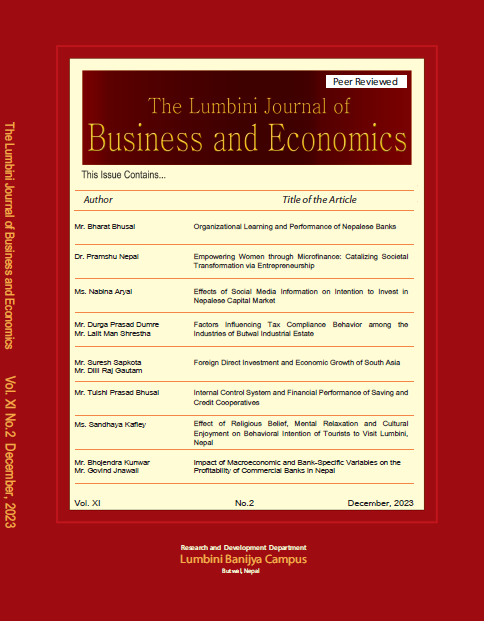Organizational Learning and Performance of Nepalese Banks
DOI:
https://doi.org/10.3126/ljbe.v11i2.64707Keywords:
Organizational Learning, Public BanksAbstract
This study delves into the significance of organizational learning in Nepalese public and private banking institutions, with a focus on understanding its impact on operational efficiency. Employing a Structural Equation Modeling (SEM) approach, the research scrutinizes the relationship between organizational learning and bank performance, utilizing primary data gathered through a descriptive methodology. Drawing from a sample of 3 public and 11 private banks, encompassing 560 questionnaires with 40 respondents from each institution, the investigation reveals a substantial and positive correlation between organizational learning and the performance metrics of banks in Nepal. These findings underscore the importance of fostering organizational learning initiatives, suggesting profound implications for enhancing operational efficiency and effectiveness within the Nepalese banking sector. Moreover, the research underscores the pivotal role of organizational learning as a fundamental driver of capable functioning in both public and private sector banks. By elucidating the symbiotic relationship between organizational learning achievements and banking performance, the study advocates for managerial attention towards cultivating a learning-oriented atmosphere within these financial entities. Ultimately, the study emphasizes the intrinsic value of organizational learning as a strategic force for enhancing the performance dynamics of Nepalese banks, advocating for sustained managerial investment in nurturing a culture conducive to continuous learning and knowledge acquisition.




